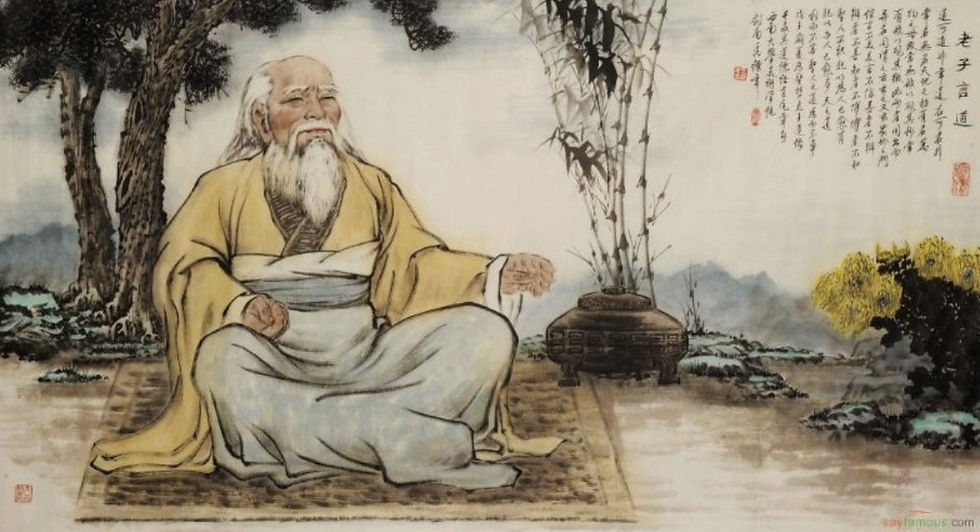
In the sixth century BC, the ancient Chinese sage Laozi wrote one of the most important books of Taoism, the Tao Te Ching (Dao De Jing). The work, which consists of two parts, means the book of dao and de. Dao De Jing is considered the most fundamental text of the Dao understanding of the universe. "Dao/Tao" means "Way". "De/Te" is used in the Laozi tradition to mean entering a state of spontaneity, becoming one with the universe, and in the Kongzi tradition to mean "virtue". "Ching/Jing" means book, classic work. It has been translated into Turkish as "The Way of the Way and Virtue" . The oldest surviving example of the work written on bamboo sticks was found in excavations carried out in ancient tombs at the Mawangdui[1] (Western Han Dynasty 206 BC-AD9) archaeological site between 1963-74.
Lao Tzu, author of the Dao De Jing (Tao Te Ching), is thought to have kept the Imperial Archives of the Chou Court in Honan province.
Lao Tzu on the Ox
According to legend, when Lao Tzu was about to retire from public service, he mounted a horse and rode west into the desert regions of China. When the border guard of the Ch'in province asked him to write down his thoughts so that they could be passed on to mankind, Lao Tzu sat for two days and wrote the "Dao De Jing." After handing over the work to the guard, he rode off into the desert, never to be seen again.

In its original form, the Dao De Jing is believed to have consisted of eighty-one short chapters, organized into two sections known as the 'Dao Jing' and the 'De Jing'. The first of these scrolls had thirty-seven chapters, and the second forty-four chapters. The essence of Daoism is contained in these eighty-one chapters (roughly 5,000 words), which exerted a great influence on Chinese thought and culture for 2,500 years.
This scholar, called Lao Tze, most likely had another name, for the characters for Lao Tze also mean "old man" or are sometimes translated as "old scholar". The same characters in Japanese are reserved for a master of Zen teachings, pronounced "roshi" in that language. Although many disagree on who wrote the Dao De Jing and perhaps when it was written, there is little disagreement among scholars as to its value as a literary and philosophical work for all people.